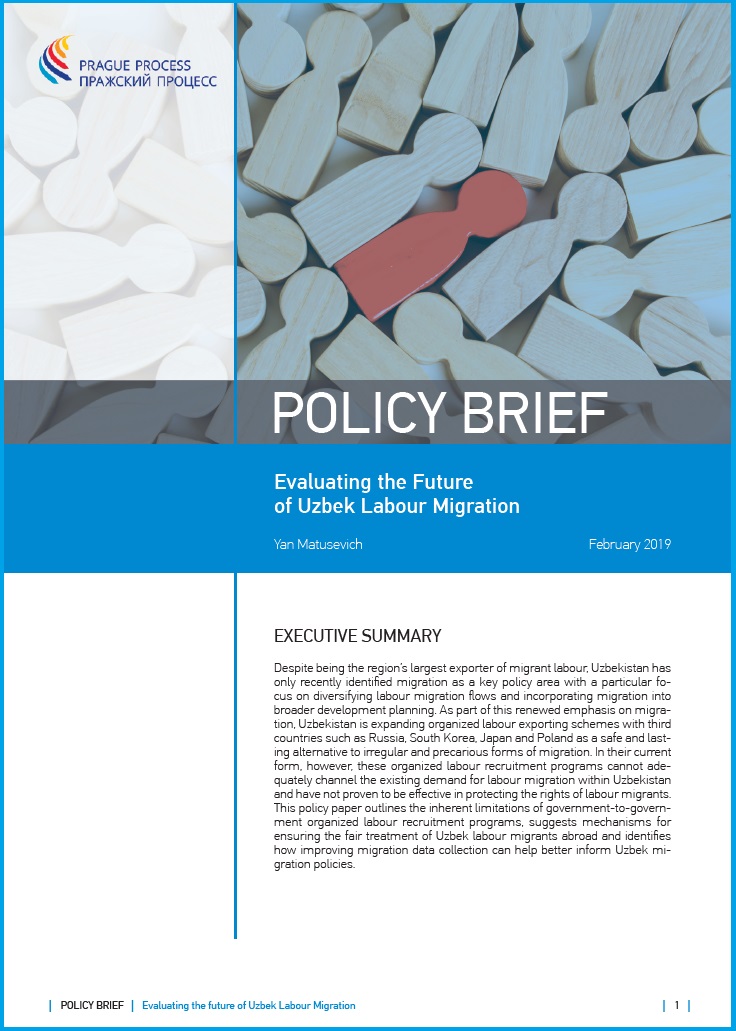Evaluating the Future of Uzbek Labour Migration
27 March 2019
Briefs
Despite being the region’s largest exporter of migrant labour, Uzbekistan has only recently identified migration as a key policy area with a particular focus on diversifying labour migration flows and incorporating migration into broader development planning. As part of this renewed emphasis on migration, Uzbekistan is expanding organized labour exporting schemes with third countries such as Russia, South Korea, Japan and Poland as a safe and lasting alternative to irregular and precarious forms of migration. In their current form, however, these organized labour recruitment programs cannot adequately channel the existing demand for labour migration within Uzbekistan and have not proven to be effective in protecting the rights of labour migrants. This policy paper outlines the inherent limitations of government-to-government organized labour recruitment programs, suggests mechanisms for ensuring the fair treatment of Uzbek labour migrants abroad and identifies how improving migration data collection can help better inform Uzbek migration policies.

